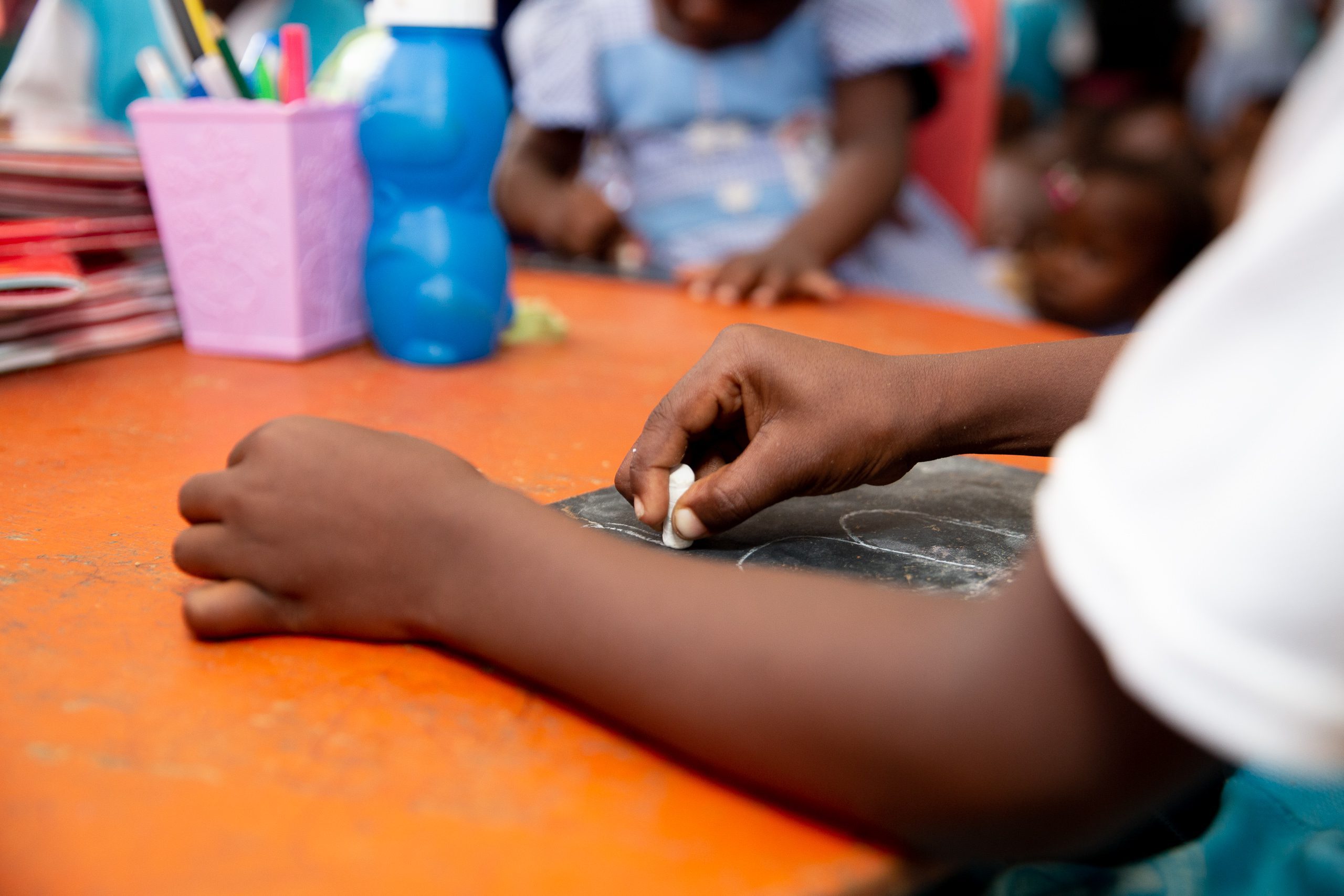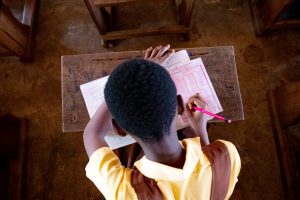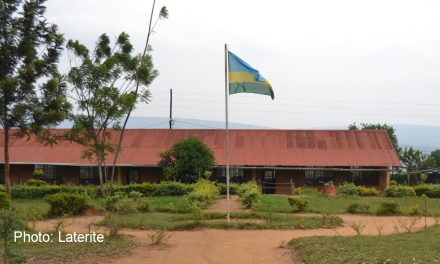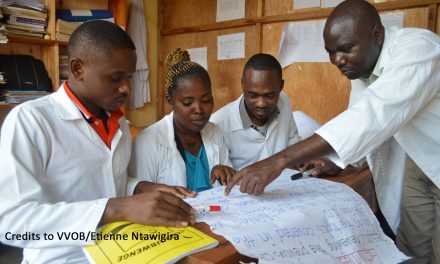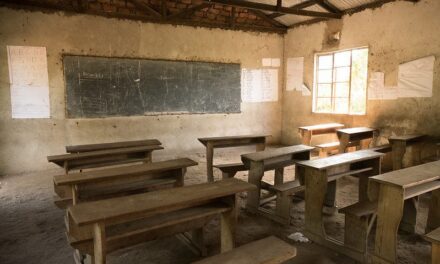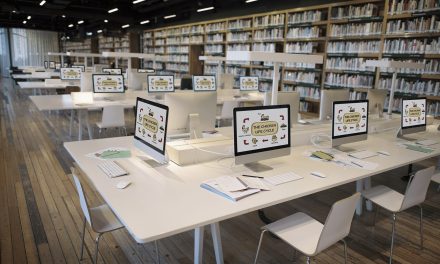This blog was written Dr Julie Bélanger, Director of Research and Evaluation at the Education Partnerships Group (EPG). It is part of a series of blogs reflecting on the impact of the current COVID-19 pandemic on research work on international education and development. This has also been posted on the Education Partnerships Group website and Cambridge University Press.
The speed and reach of the COVID-19 crisis have been mind-boggling: On 26 January 2020, schools in China were closed as a measure to help contain the outbreak. Now, just over two months later (as of 15 April), 91% of enrolled children across 191 countries have been affected by school closures. According to UNESCO’s global monitoring of school closures, this represents a whopping 1.6 billion learners.
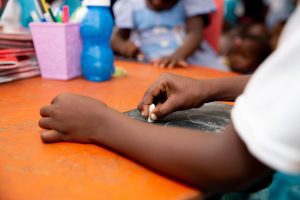 The adverse consequences of school closures have been documented, most recently from lessons learned during the Ebola crisis (Hallgarten, 2020), and include interrupted or lower quality learning, health and consequences related to poor nutrition, social isolation, increased teenage pregnancies, consequences due to financial burdens, and many more. To make things worse, school closures will have especially devasting effects for the most vulnerable and marginalised – as documented by many, including Pauline Rose, from the REAL Centre, University of Cambridge; Stefania Giannini and Suzanne Grant Lewis, from UNESCO; and Megan O’Donnell, Maryam Akmal and Susannah Hares, from the Center for Global Development .
The adverse consequences of school closures have been documented, most recently from lessons learned during the Ebola crisis (Hallgarten, 2020), and include interrupted or lower quality learning, health and consequences related to poor nutrition, social isolation, increased teenage pregnancies, consequences due to financial burdens, and many more. To make things worse, school closures will have especially devasting effects for the most vulnerable and marginalised – as documented by many, including Pauline Rose, from the REAL Centre, University of Cambridge; Stefania Giannini and Suzanne Grant Lewis, from UNESCO; and Megan O’Donnell, Maryam Akmal and Susannah Hares, from the Center for Global Development .
With the global situation changing daily and an exponentially growing proportion of children out of school, governments have been scrambling to find ways of ensuring some continuity in learning now, while planning for the medium- to longer-term consequences of the pandemic. This has required so much pivoting that it is not surprising that we are all feeling somewhat dizzy…
In their recent open letter to a Minister of Education, Karen Mundy and Susannah Hares, call for Ministers to stay on top of the evidence and learn. Indeed, is it more important than ever to learn from what has worked and avoid wasting precious resources on strategies that have not. But evidence to guide emergency policy decisions is often not contextualised, contradicting, nor available at all. This K4D Helpdesk Report by Joe Hallgarten is a timely and useful rapid summary of the evidence regarding efforts to mitigate the secondary impacts on education of past disease outbreaks (such as H1N1 or Ebola). But one frequent conclusion of the available evidence throughout the report is that there is a lack of evidence for many of the mitigation measures. This is not to say that these measures did not work, just that we do not know.
Governments adapting quickly
At the Education Partnerships Group, we are a small non-profit organisation that partners directly with governments to support their reforms at the system level, prioritising being contextually relevant and striving for our work to be evidence-based, using what we learn to refine our support. We work by developing long-term partnerships with the governments in the small number of countries where we work, by listening to their priorities and by ensuring they are driving the agenda. What this has meant these past few weeks is that we have been able to pivot with them as their priorities have shifted to respond to the growing COVID-19 crisis. This pivoting has also been possible thanks to our funders’ flexibility and agility in their own response to these new demands.
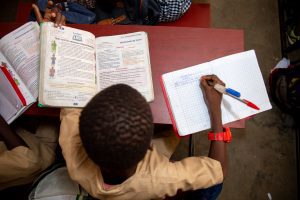 I have been humbled to see how quick and swift their response has been to contain the spread of the virus. In Sierra Leone, school closures went into effect when one single case of coronavirus had been identified. In both Sierra Leone and Côte d’Ivoire, the governments quickly unearthed their emergency response strategy developed during the Ebola crisis to adapt it to the current crisis.
I have been humbled to see how quick and swift their response has been to contain the spread of the virus. In Sierra Leone, school closures went into effect when one single case of coronavirus had been identified. In both Sierra Leone and Côte d’Ivoire, the governments quickly unearthed their emergency response strategy developed during the Ebola crisis to adapt it to the current crisis.
But despite these proactive actions, we are hearing from governments that not enough has been learned from past outbreaks on how to best mitigate against the negative impacts of school closures to inform their actions today. Not enough cross-country learning is taking place. And there is a lack of resources to ensure that we can sufficiently learn from the current situation.
Knowledge sharing in a time of global crisis
As part of its new COVID-19 Education Coalition efforts, UNESCO will be hosting regular webinars to provide a forum where country representatives can share information on the effectiveness of approaches used in different contexts. Other local networks, such as the ADEA education network, could offer valuable platforms to support such learning. The Africa Evidence Network has created a dedicated page to support the use of evidence in decision-making during the COVID-19 outbreak on the African continent, though limited information is available yet for the education sector.
I strongly echo Pauline Rose’s call for a need for more evidence of lessons learned and I would add that in addition to what researchers can do, governments themselves have much to contribute to building this evidence base. Acknowledging that the initial focus for many governments is ensuring continued learning opportunities for all children, another emerging priority is the preparation for recovery and for long-term resilience in the face of possible multiple waves of the virus. This was quickly identified by our government partners in Côte d’Ivoire, where we are exploring how to support the establishment of monitoring and quick feedback loops to provide the government with learnings about their current efforts to better adapt their response and inform future policies.
Now more than ever, we need systems that will give governments the rapid data they need now as they need to constantly pivot to the changing context, while building the foundations needed to evaluate the medium- and longer-term effects of the approaches taken. As these monitoring systems develop around the world, it will be key to widely share the learnings they will yield across all these different contexts.

